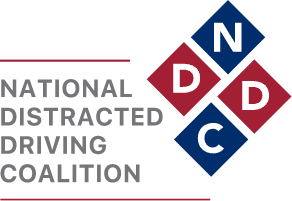National Passenger Safety Week begins on Sunday, January 21, 2024
Picture this: You’re riding in the passenger seat of your friend’s car when they reach down to pick up their phone and change the music. You offer to help, but they decline. They do this all the time. They know what they’re doing, and it will only take a second. Their eyes continuously dart from the roadway to the screen. You want to say something, but you don’t want to offend your friend. What would you even say?
National Passenger Safety Week, which begins on Sunday, January 21, is dedicated to empowering and encouraging passengers to speak up when their driver is distracted, impaired, speeding, or taking other reckless actions that could put lives at risk. The event, organized by We Save Lives and the National Road Safety Foundation, is in its third year. The National Distracted Driving Coalition is proud to support this effort.
A recent analysis from the National Highway Traffic Safety Administration suggests distracted driving plays a role in nearly one in three crash deaths. In many cases, the person killed is not the distracted driver but another road user or passenger in the same vehicle — sometimes more than one. In 2021, of the 26,585 people killed while riding in passenger vehicles, about 22% were passengers in the front or rear seats, according to the Insurance Institute for Highway Safety (IIHS).
Passengers can protect themselves and others from the dangers of distraction, impairment, lack of seat belt use, and speeding simply by speaking up. But that prompts the question: If your driver is distracted, what could you say?
According to a recent national survey commissioned by IIHS, simply reminding a driver that distracted driving is dangerous can make a difference, especially if the driver is a friend or loved one. In that survey, most respondents agreed that being reminded by someone they care about that they might injure or kill someone would motivate them to avoid distractions.
Joel Feldman, founder of the Casey Feldman Foundation and EndDD.org, has additional advice based on his experience at dozens of workshops with students across the country. “Try the simple statement ‘As a passenger, I don’t feel safe when you look at your phone while driving,’” Feldman says. “Using ‘I’ instead of ‘you’ can sound less confrontational. In my experience, when drivers hear concerns expressed by their passengers in this way, many will put their phones down. It is seldom necessary to even ask the driver to put their phone down when an ‘I statement’ is used.”
In addition to resolving to speak up, National Passenger Safety Week is also an excellent time to remind family and friends to take proactive steps to eliminate distracted driving, such as enabling their phone’s “do not disturb while driving” feature, which can block incoming notifications automatically when they’re driving.
“Research shows we all have the power to positively influence the behavior of everyone around us,” says Robyn Robertson, NDDC chair and President & CEO of the Traffic Injury Research Foundation. “Speaking up to talk about our own choices to be safe and why we make them can effectively encourage others to adopt similar safe behaviors. Another opportunity to speak up is to say, ‘Do you know you can enable Do Not Disturb While Driving to help you focus on the road?’”
Learn more about National Passenger Safety Week and take the “Courage to Intervene” promise at www.nationalpassengersafety.org.
NDDC Steering Committee Press Contacts
Nick Chabarria
Automobile Club Of Missouri
JOE YOUNG
Insurance Institute for Highway Safety
